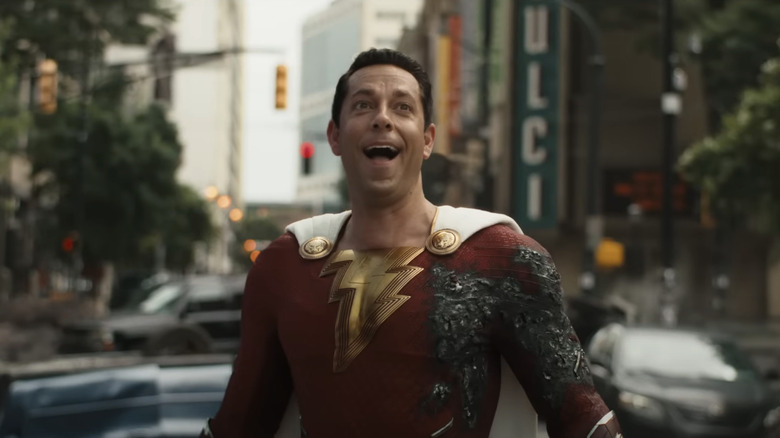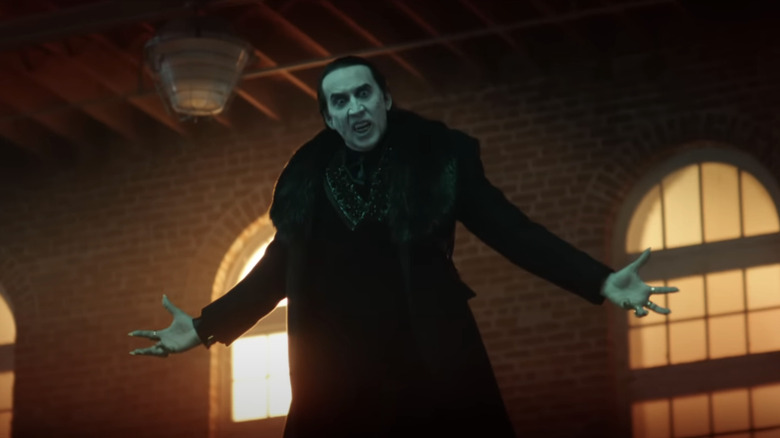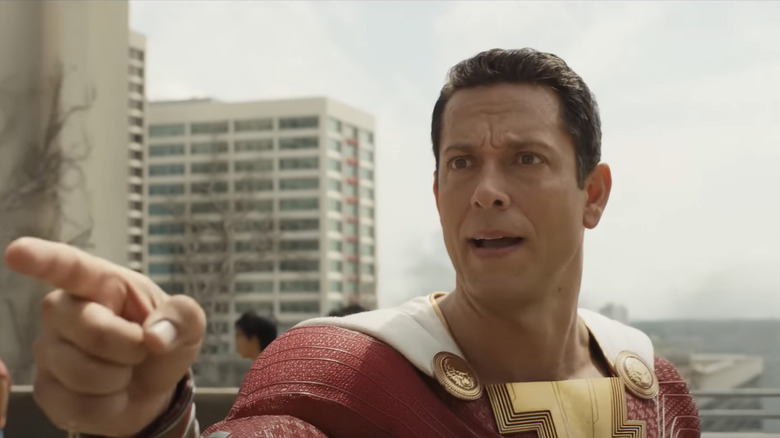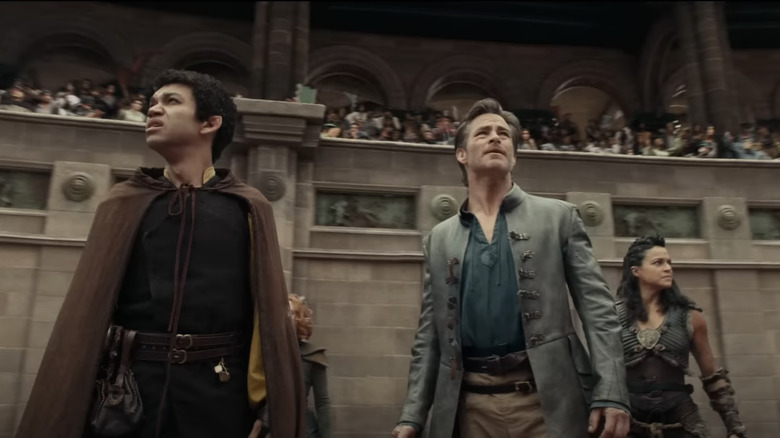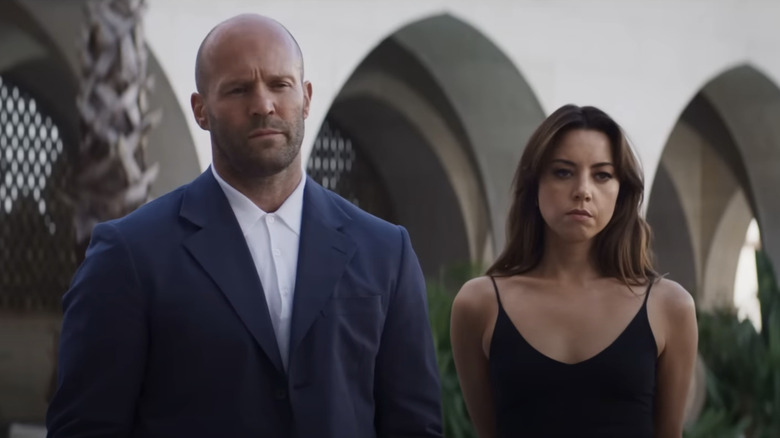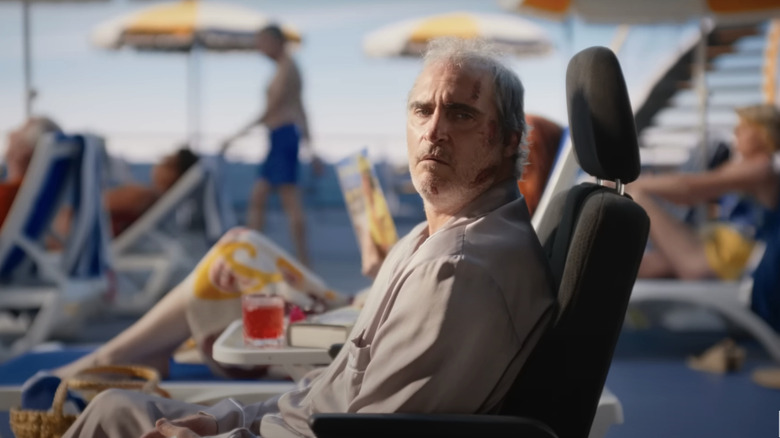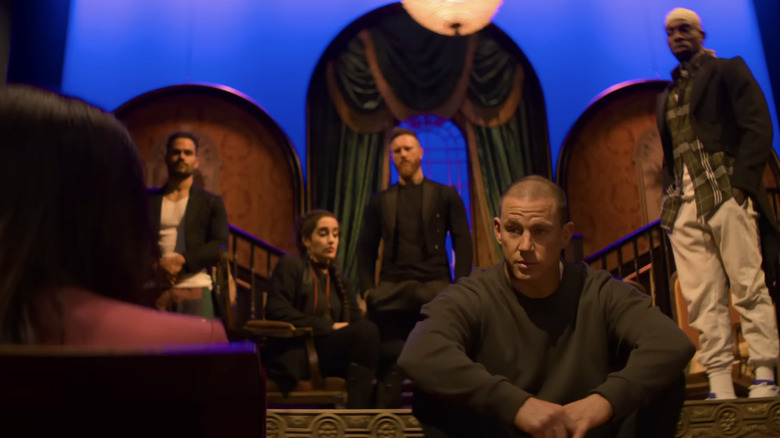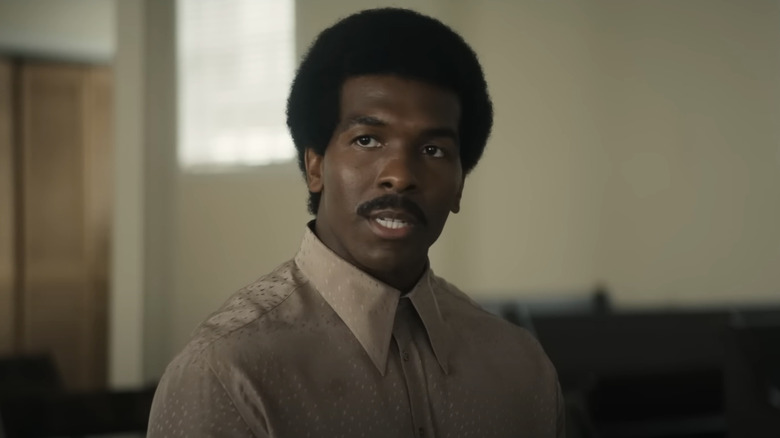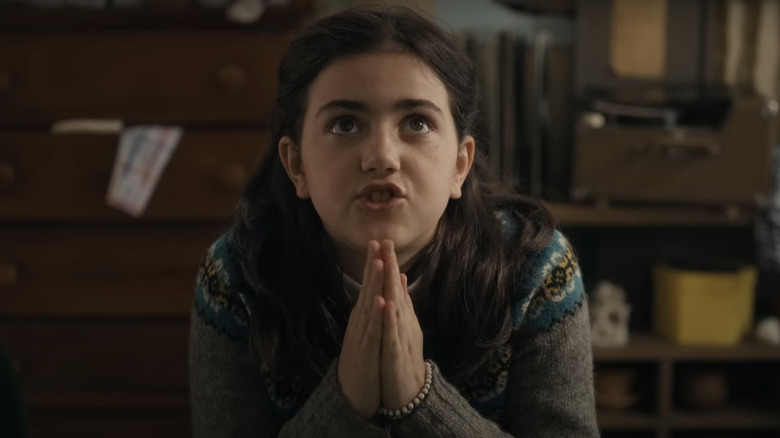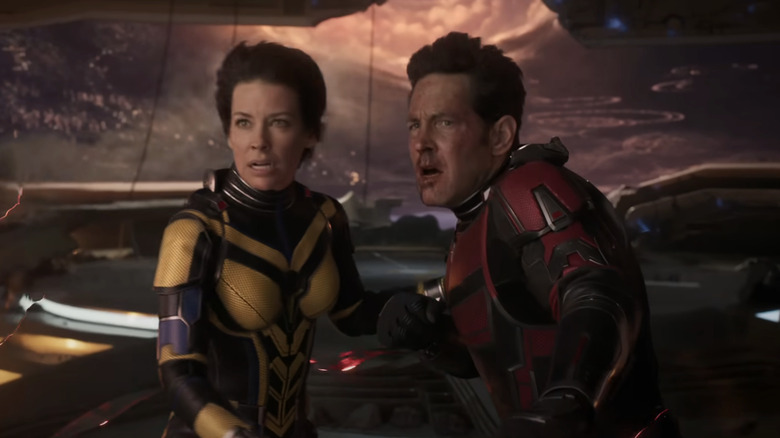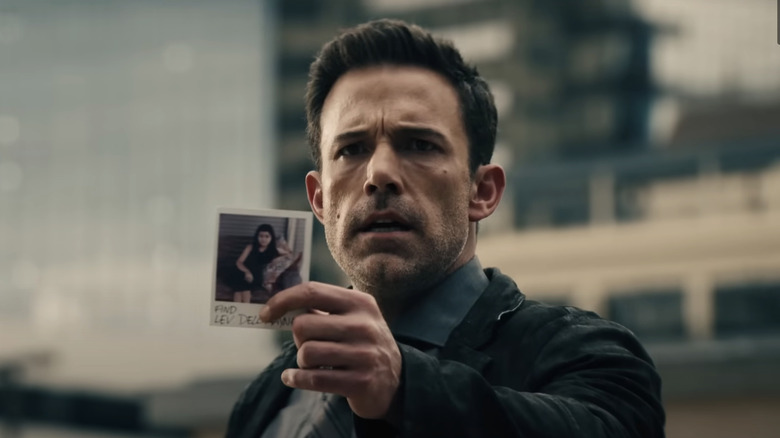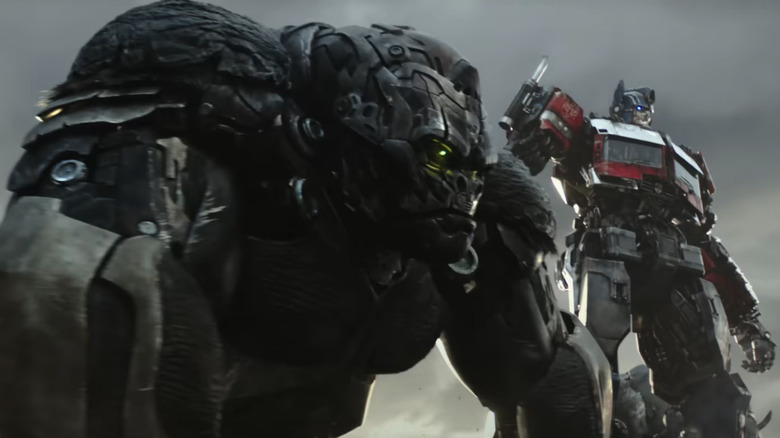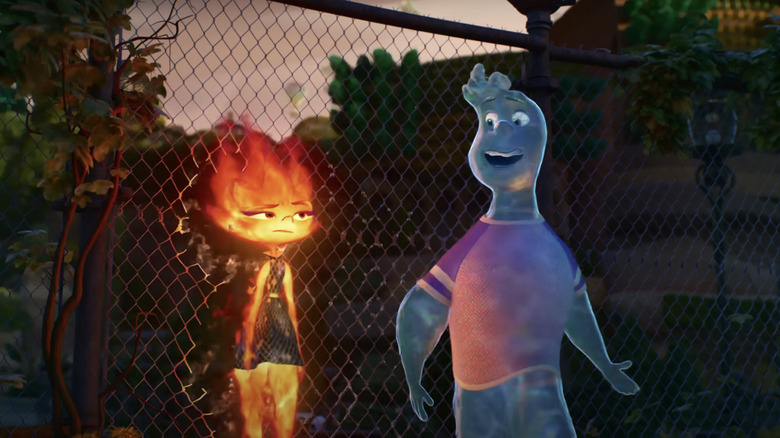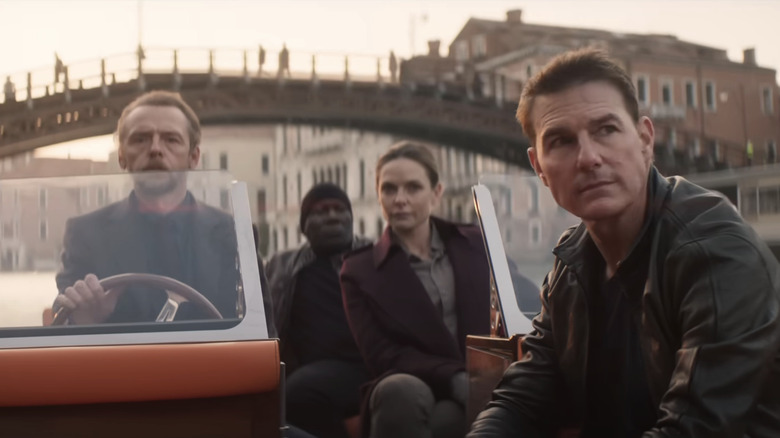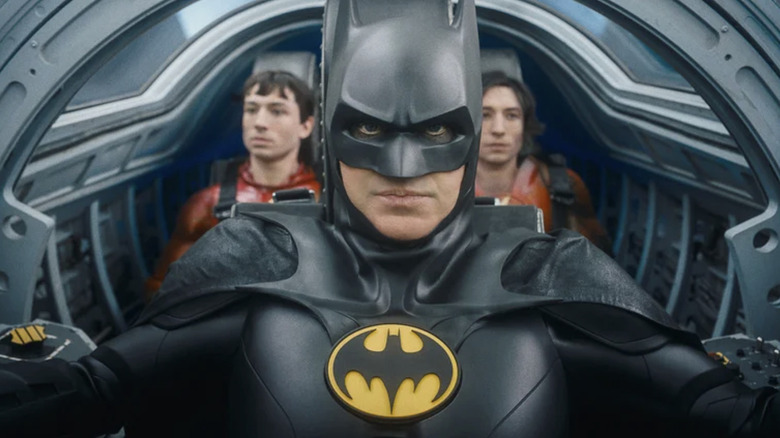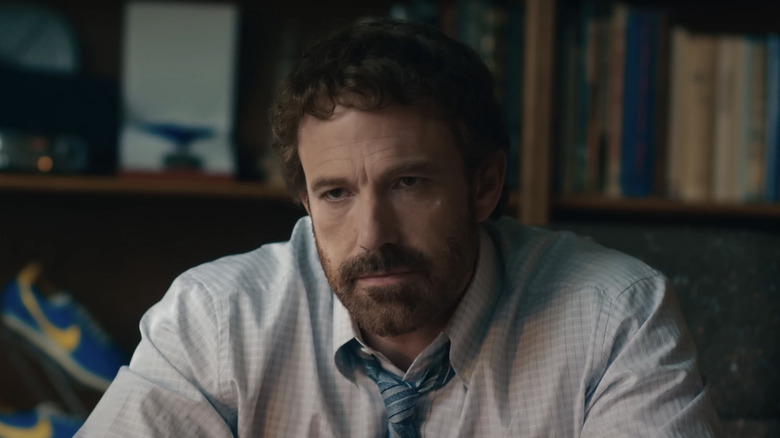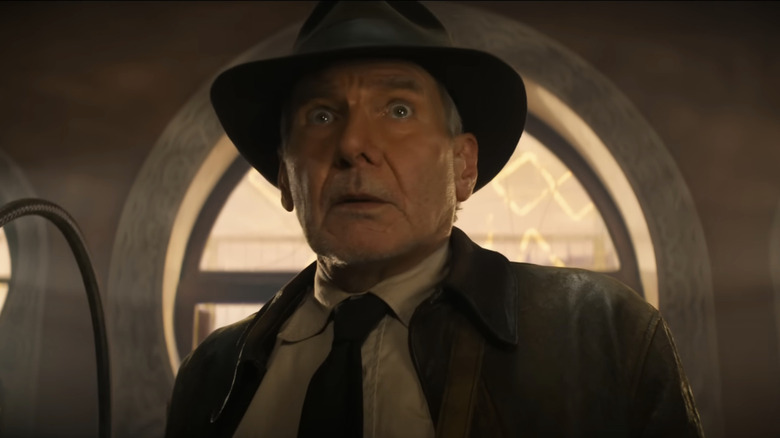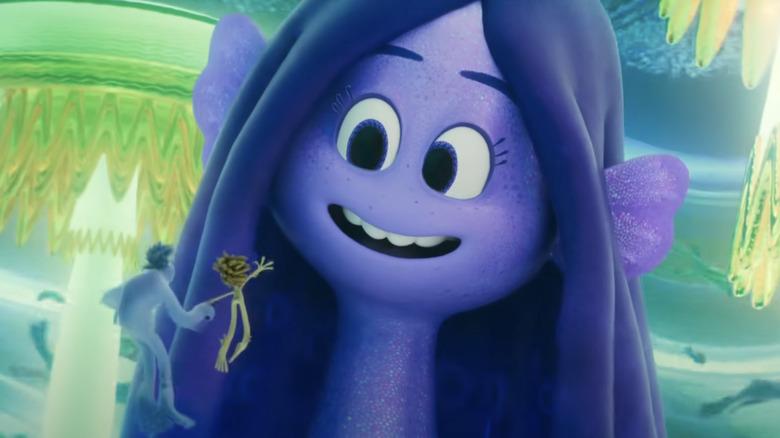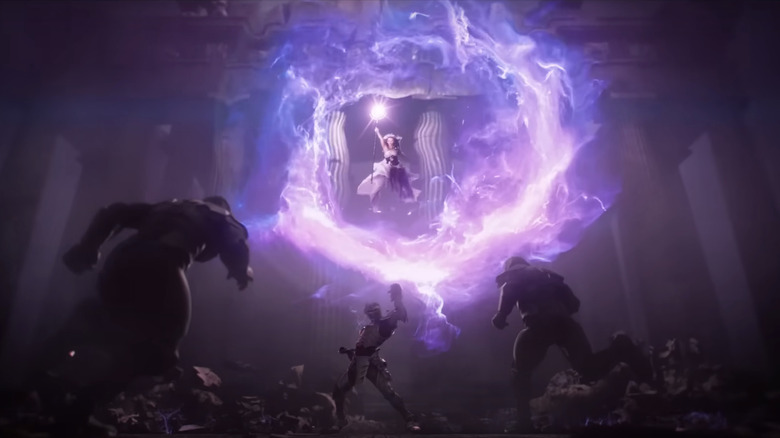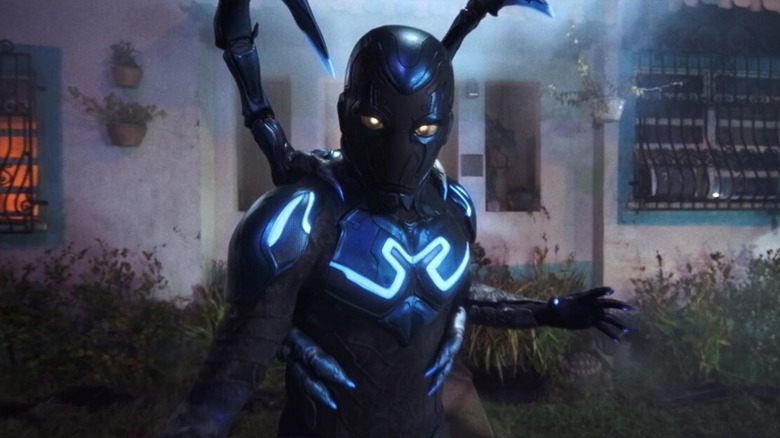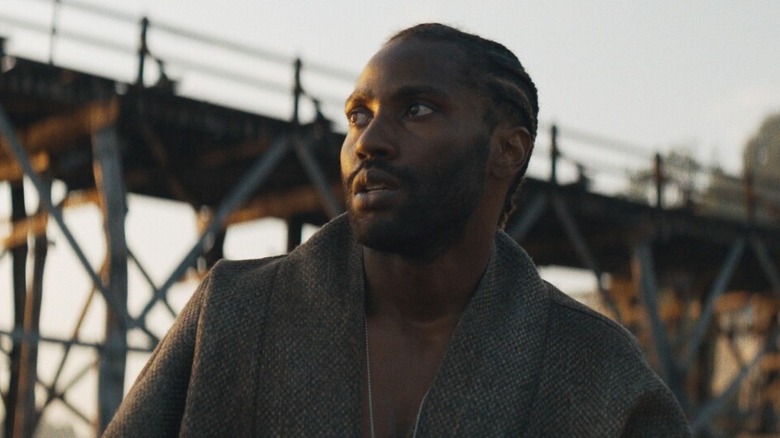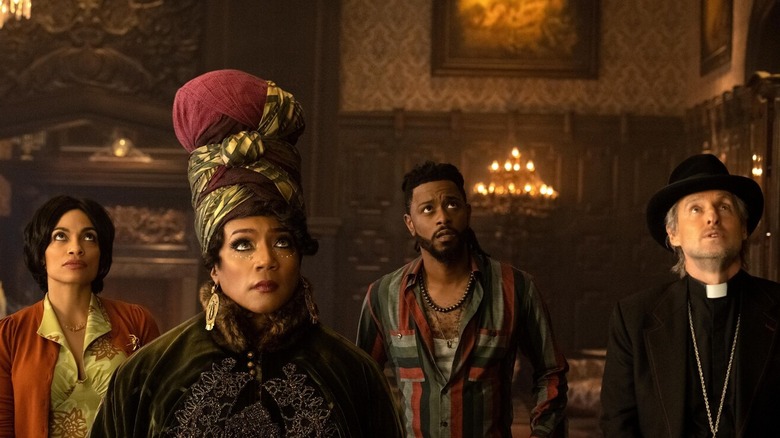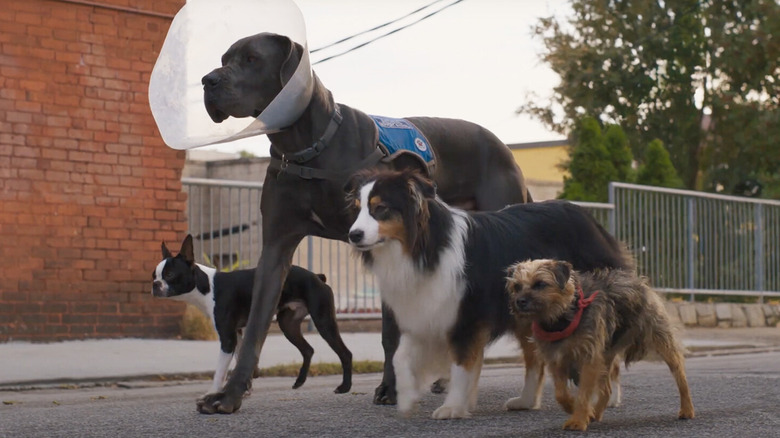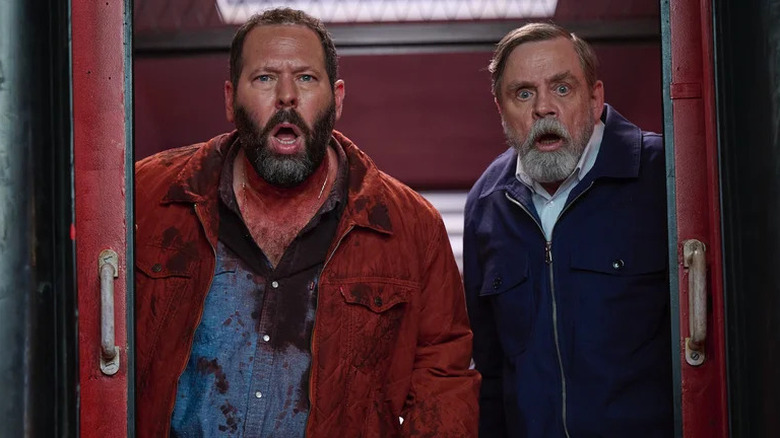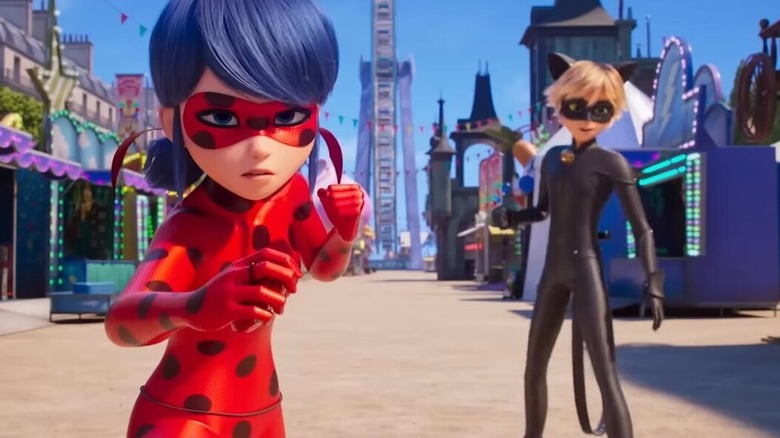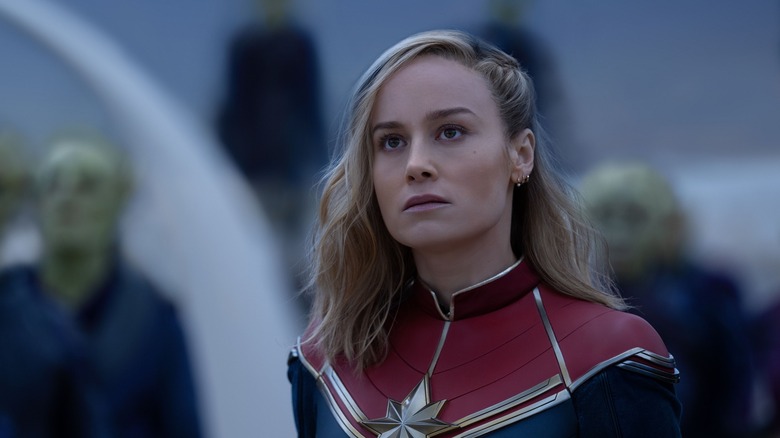The Biggest Box Office Bombs Of 2023
The film industry is seeing a major tide shift. People are returning to movie theaters nearly two years after the COVID-19 pandemic ravaged the film industry and box office receipts. Consider two of the highest-grossing movies of 2022 – "Top Gun: Maverick" and "Avatar: The Way of Water" – which gave ardent film buffs newfound hope in the power of the moviegoing experience.
However, not everything has returned to how it was before the pandemic. As a result of the rise in exclusive streaming releases, audiences have become much more selective about the kind of movies they will pay to watch in theaters — given it often only takes a few weeks for those same movies to appear on streaming platforms, viewed in the comfort of their homes. As a result, this has led to a few unexpected bombs at the box office.
Some of these films were greenlit before the pandemic when the markets were vastly different. Some were entries in a doomed franchise, hence dead on arrival, while others were just a product of poor planning and marketing, having overloaded costs without any proper analysis of the market. Here are the biggest box office bombs of 2023.
Renfield
"Renfield" opened to a measly $10 million on a $65 million budget, facing stiff competition from other April releases like "The Pope's Exorcist" and "The Super Mario Bros. Movie." Given that the character of Dracula has had a haunting legacy in horror for the past century, viewers who came to watch "Renfield" expecting a scary movie were disappointed to find that the comedy aspects were dominant.
This is particularly important, considering that horror films are known to be profitable at the box office, given their generally low production costs and high demand from horror-loving fans. "Renfield" faced direct competition from "The Pope's Exorcist," which was made on a much lower budget of $18 million and was solely focused on delivering a horror experience — it ended up raking in a worldwide gross of $66 million. Additionally, Universal's decision to release "Renfield" just a week after their own commercial juggernaut, "The Super Mario Bros. Movie," could be deemed questionable, highlighting the lack of faith the distribution company had in its scrappy horror comedy.
"The Pope's Exorcist" producer, Jeff Katz, took to Twitter to express his glee, "Looks like [The Pope's Exorcist] is coming in ahead of RENFIELD to debut in second place this weekend ... Beating our direct competition — who had double our marketing spend and more than 3x our production budget — is a nice little win." Katz continued in another tweet, "The moral of the story is that genre pictures should generally only be made for a smart price. Whole point is to be able to hit singles and doubles and still potentially come back for more. POPE's will be profitable for Sony entirely because of this approach."
Shazam! Fury of the Gods
Shazam truly did face the fury of the box office gods this year. Raking in $30.5 million in its opening weekend, "Shazam! Fury of the Gods" was the worst opening for a DCEU film that wasn't released during the pandemic, especially when compared to the $53.5 million opening of its 2019 predecessor. With a worldwide take of just over $130 million — on a $110 million budget and with another $100 million in marketing costs — it would be an understatement to say that the film was a box-office disappointment.
A growing sense of "superhero fatigue" among audiences, lack of positive word of mouth, and mediocre critical reception are just some of the reasons attributed to the film's flop. Additionally, the announcement of a rebooted DC Universe by new DC Studios heads, James Gunn and Peter Safran, may have lowered audience interest in existing DCEU narratives, and competition with "The Super Mario Bros. Movie" and "Dungeons & Dragons: Honor Among Thieves" proved to be a fatal blow to "Fury of the Gods."
This wasn't a surprise for director David F. Sandberg, however, who made a now-deleted comment on Reddit (via Comicbook.com), "I saw where this was heading a long time ago. I'll be alright though. I got paid all my money upfront." Similarly, lead star Zachary Levi tweeted his take on the film's disappointing reception, writing, "I think the biggest issue we're having is marketing. This is a perfect family movie, and yet a lot of families aren't aware of that. Which is just a shame."
65
"65" is an original science-fiction film that's not part of a larger franchise — a rare creature, these days. The film follows a space pilot (Adam Driver) and a young girl (Ariana Greenblatt) as their ship crashes on a dinosaur-infested Earth, following their efforts to make their way through the perilous habitat of the prehistoric planet.
The film's marketing banked on Driver's fan following, so much so that the film is colloquially referred to as "Adam Driver's 65" to make up for an ambiguous and rather bland title. The problem? Driver's star power hasn't necessarily proved to be a box office draw outside of the "Star Wars" sequel trilogy — especially considering that the budget for "65" was reported to be around $91 million.
This expensive film was also released in March 2023, a month when audiences had several other films to choose from for their cinema-going experience. "65" competed with franchise flicks that many fans eagerly looked forward to, such as "Scream VI," "Ant-Man and the Wasp: Quantumania," and "Creed III," along with movies released earlier that were still running in theaters, like "Puss in Boots: The Last Wish" and "Avatar: The Way of Water." The poor word of mouth and critical reception (it currently sits at a 35% Tomatometer rating) didn't help the case of a film that became an inevitable flop.
Dungeons & Dragons: Honor Among Thieves
After a long-drawn-out legal battle between several studios over the film adaptation rights to the beloved tabletop game "Dungeons & Dragons," "Dungeons & Dragons: Honor Among Thieves" finally hit cinemas in March 2023 to positive reviews and a solid opening at the box office, garnering $38 million on a projection of $30 million in its opening weekend.
While the film went on to rake in a worldwide gross of $190 million, there are doubts about whether the fantasy film will be viewed as a success, considering that the film's budget is reported to be $150 million minus marketing costs. The general rule of thumb in terms of a film's profitability is that blockbusters need to earn at least 2.5 times their budget to be profitable, given their large marketing costs, which means that "Honor Among Thieves" would have had to gross at least $370 million for it to break even — a far cry from its $190 million gross.
The film's competition with other March releases, especially "The Super Mario Bros. Movie," added to the uphill climb of "Honor Among Thieves" at the box office, in addition to the growing evidence of fantasy movies being a box office rut in recent years as they face competition from popular fantasy television series like "The Lord of the Rings: The Rings of Power" and "House of the Dragon." The film's disappointing returns spell doubt about the possibility of a sequel, but the upside is that it could prove to be a worthwhile venture when it is released on Paramount+.
Operation Fortune: Ruse de Gurre
Guy Ritchie's films have always been hit or miss. His 2019 Disney live-action remake of "Aladdin" grossed a little over $1 billion worldwide, while his 2017 historical epic, "King Arthur: Legend of the Sword" turned out to be a major box office disappointment. Ritchie's latest spy flick, "Operation Fortune: Ruse de Guerre," proved its poor fortune with a meager $3.1 million domestic opening and a worldwide gross of $37 million against an estimated $50 million budget.
The film's poor box office showing wasn't surprising, however, as many trade experts foretold its inevitable financial doom, given its troubled marketing and release debacle. "Operation Fortune" was marred with multiple delays in its release — initially being slated for a January 2022 release, it was then delayed to March due to a spike in COVID-19 cases through the United States, only to be pulled from release indefinitely simply due to bad timing. As it turns out, the majority of the film's villains are Ukrainian, a coincidence that producers felt was in poor taste considering the ongoing Russian invasion of Ukraine.
Moreover, financial problems plagued production studio STX, with its merger and restructuring further putting the release of "Operation Fortune" in doubt. As a result, the film suffered from poor marketing, given that its final release date was announced just a few weeks before its March 2023 release. This gave the film very little time to build any hype for audiences amid its competition against "Ant-Man and the Wasp: Quantumania," "Creed III," "John Wick: Chapter 4," and "Scream VI."
Beau Is Afraid
In the month since its release, "Beau Is Afraid" made a total of just $8.3 million on a budget of $35 million – A24's most expensive film to date. With a large budget for an indie film, writer-director Ari Aster was given complete free reign over the canvas to splash grandiose strokes of his distinctively absurdist style. But this, unfortunately, is why the film polarized audiences so much. One wing of the polarization celebrated Aster's non-conformist filmmaking approach, while the other was unable to shake off the feeling that he may have been too self-indulgent with this film.
It's not unreasonable for A24 to have expected big returns from Aster's third outing, given that the director's previous two films proved that there's an audience for his brand of movie-making. 2018's "Hereditary" made over $81 million on a budget of $10 million, and 2019's "Midsommar" grossed $46 million on a budget of $9 million. Compared to "Beau Is Afraid," the budgets for both these films were modest, which was a major factor in their profitability. Even though "Beau Is Afraid" topped the 2023 indie box office, with a record collection of $320,396 from four theaters in its opening weekend, it's likely that the film will become a huge financial loss for A24.
Guy Ritchie's The Covenant
Of all the filmmakers you could imagine appearing more than once on a list like this, Guy Ritchie is perhaps the least likely pick. His second release in 2023, "Guy Ritchie's The Covenant," is his best-reviewed movie to date, with an 82% rating on Rotten Tomatoes. However, the film's critical achievement was overshadowed by its significant financial failure, making a worldwide gross of just $15.4 million on a bloated $55 million budget.
"Guy Ritchie's The Covenant" is nothing like any of Ritchie's other films: It's much more tonally grounded and pensive without the wit or style that the director's filmography boasts. Even after attaching the filmmaker's name to the title, it failed to draw in fans of Guy Ritchie. The bomb could be blamed on the film's minimal marketing, as well as its distribution model of releasing in just over 2600 theaters domestically, with no theatrical release internationally.
The film was distributed by MGM (owned by Amazon) in the U.S., while the international distribution and post-theatrical streaming rights were relegated to Amazon Prime Video, essentially making it a streamer in other countries. As with Ritchie's "Operation Fortune: Ruse de Guerre," which was released just a month before "The Covenant," both films were produced by STXfilms, whose financial problems in the past few years also likely impacted the film's marketing and release.
Magic Mike's Last Dance
With a $40 million budget plus $20 million in marketing, Magic Mike's final outing proved to be the most expensive as well as the least profitable in the franchise. While "Magic Mike's Last Dance" topped the box office in its opening weekend with a collection of $8.2 million, the film ended its theatrical run with a worldwide gross of $56 million, a far cry from the profitability of its predecessors. In comparison, 2012's "Magic Mike" earned a total global gross of $170 million, while its 2015 sequel "Magic Mike XXL" made a total of $123 million worldwide.
"Magic Mike's Last Dance" was originally produced to be an HBO Max exclusive, until Warner Bros. Discovery CEO David Zaslav – an ardent supporter of the theatrical moviegoing experience – opted to give the film a wide theatrical release. However, given that it had been nearly eight years since the release of the previous film, audiences weren't as keen to catch up with the franchise. As the third movie shifted its focus to Mike and newcomer Max's romance, the ensemble cast that made the prior two movies so popular was virtually absent. Members of Mike's troupe, "Kings of Tampa" — played by Joe Manganiello, Matt Bomer, Kevin Nash, and Adam Rodriguez — appeared briefly at the end of "Last Dance," which wasn't enough for those who had been expecting their presence.
Big George Foreman
"Big George Foreman: The Miraculous Story of the Once and Future Heavyweight Champion of the World" chronicles the rise, fall, and rise again of the boxing legend and entrepreneur George Foreman. Produced at a $32 million budget, the most expensive project of production studio Affirm Films (the Christian media subsidiary of Sony Pictures), "Big George Foreman" was projected to earn $5 million in its opening weekend, only to scrape in a disappointing $3 million from 3,054 theaters.
While the high budget isn't entirely unreasonable, given that George Foreman is a household name in the U.S., the film's failure could be attributed to inadequate marketing and a lack of clear focus on its target audiences. "Big George Foreman" was split on its marketing, attempting to appeal to both Christian audiences and sports genre fans. The film didn't win over either group, with the former considering the film too "mainstream" and the latter finding it too heavy-handedly faith-oriented.
Faith-based films are generally produced on modest budgets, which is a significant component of their profitability. In comparison to other faith-based films released in 2023, Lionsgate's "Jesus Revolution" grossed $52 million on a budget of $15 million, while the indie biblical "His Only Son," produced with a $250,000 budget, raked in an impressive $12 million. With a total global gross of just $5.2 million so far, the film shows no signs of recovering its $35 million budget, proving "Big George Foreman" to be a big loss-making venture.
Are You There God? It's Me, Margaret.
For nearly 49 years, author Judy Blume had outright refused any offers for the film rights to her bestselling 1970 novel "Are You There God? It's Me, Margaret," until a visit from producer James L. Brooks and writer-director Kelly Fremon Craig ("The Edge of Seventeen") convinced the author that the two would do Margaret justice on the big screen.
While the faithful film adaptation of the 1970 novel was released to rave reviews from both critics and audiences, "Are You There God? It's Me, Margaret" opened to a disappointing $6.8 million. It looks to be on a difficult road for the film to recover its $30 million budget, considering that the film is geared towards a very specific target audience.
Despite the story's timeless themes, the non-contemporary 1970s setting could have had a detrimental effect on the film's appeal with its target demographic of young girls. Given that the film primarily attracted women over 45 who grew up with the book, rather than its intended target audience of teen and preteen girls (who made up only 6% of the film's overall audience demographics), a lack of clarity regarding who this movie was for may be the main reason it bombed.
Ant-Man and the Wasp: Quantummania
With the track record that Marvel Studios had established at the box office in the past decade, the flop of "Ant-Man and the Wasp: Quantummania," the first entry in MCU's Phase 5, may have come as a surprise to many fans. However, others had anticipated the franchise's slump given the decreasing quality of Marvel's line-up of movies and TV shows in Phase 4 after 2019's "Avengers: Endgame".
While "Quantummania" held the highest opening weekend in the "Ant-Man" franchise with a $104 million global collection, the film ultimately ended its theatrical run with a worldwide gross of just $476 million. That's lower than the $519 million and $622 million global collections of 2015's "Ant-Man" and 2018's "Ant-Man and the Wasp," respectively. The film took a sharp fall in its second weekend, with ticket sales dropping 69% from the week before, which could be attributed to lackluster critical reviews and poor word-of-mouth, as "Quantummania's" 45% Tomatometer score on Rotten Tomatoes makes it the MCU's second-lowest rating next to 2021's "Eternals."
It should be noted that the Ant-Man character was never as big of a box office draw as other Marvel A-list heroes like Thor, Spider-Man, or Doctor Strange. The $476 million figure also falls short of the film's estimated break-even point of $600 million, given "Quantummania's" $200 million budget plus marketing costs, making it a rare MCU flop. It seemed like a signal for Marvel's downfall, until "Guardians of the Galaxy Vol. 3" rescued the cinematic universe months later with critical and commercial success -– proving that Marvel's focus on quality, not quantity, would provide great yields in box office numbers and audience interest.
Hypnotic
If anyone were to ask you the name of Ben Affleck's recent-most film, you'd most likely be thinking about his directorial-starrer "Air," and would be confused about the fact that there was another movie starring the actor that was released really close to the Air Jordan biopic. "Hypnotic," directed by Robert Rodriguez ("Sin City," "Alita: Battle Angel"), follows a detective (Affleck) as he goes through a mind-bending investigation in search of his missing daughter, fighting the mental influence of a powerful hypnotist.
The thriller opened to just $2.4 million and ended up making only $9.4 million globally on a $70 million budget. This bomb could be pinned onto the messy production timeline of the film that plagued it with various problems. Greenlit in 2019 by Solstice Studios, then a newly formed small production company that was also going to distribute the film domestically, the film saw many eager production companies jumping on board to contribute to its $70 million budget. However, the production of the film was delayed several times due to the pandemic. This caused financial troubles for Solstice, which then had to lay off most of its employees, leaving only 10 employees to oversee the film's completion.
After production wrapped in 2021, Solstice also had trouble finding a new distributor for "Hypnotic." This became a rare situation in which a high-budgeted, completed film with an A-list cast was left without a domestic distributor, causing concern for the film's investors. The acquisition of the film's distribution rights by Ketchup Entertainment, a small production company with no experience distributing films the size of "Hypnotic's" budget, was another point of concern for buyers. As one told Deadline, "We were concerned about this movie being on the shelf for so long, and this has done nothing to allay that concern."
Transformers: Rise of the Beasts
Even though 2023's "Transformers: Rise of the Beasts" is one of the few films in the franchise (alongside 2018's "Bumblebee") that received a decent response from critics and audiences, the film ended up being the lowest-grossing in the entire live-action "Transformers" franchise. "Rise of the Beasts" collected a worldwide gross of $436 million, and while that seems like a decent earning for a film budgeted at $195 million, it fell short of the estimated $600 million it needed to break even. The film had topped the box office in its opening weekend, with a $171 million global gross, but faced a steep 67% drop in its second weekend due to competition from the holdover of "Spider-Man: Across the Spider-Verse," and the newly released "The Flash" and "Elemental."
The franchise has been facing a box office decline after 2014's "Transformers: Age of Extinction," with subsequent entries struggling to match up its $1.1 billion global collection. 2017's "Transformers: The Last Knight" grossed a worldwide total of $602 million on a $217 million budget, which was revealed to be a $100 million loss for Paramount, and 2018's "Bumblebee" made $465 million worldwide, which, despite being lower than its predecessor's collection, was profitable thanks to its modest budget of $102 million.
With the slew of more "Transformers" movies announced, including a trilogy of which "Rise of the Beasts" is the first, a possible crossover with "G.I. Joe" that was teased in "Rise of the Beasts'" ending, and a feature-length animated film titled "Transformers: One" slated for 2024, it remains to be seen whether they come to fruition or will languish within development hell after the flop of "Rise of the Beasts."
Elemental
For a while, "Elemental" showed signs of following in the footsteps of Pixar's previous film, "Lightyear," in becoming another box office bomb. Many felt that "Elemental," which was made on the same $200 million budget as"Lightyear", was doomed because of its lackluster marketing (a common trend for animated movies distributed by Disney in the past few years) and centered around an idea that didn't seem as appealing as the ones that Pixar had in their earlier films.
The early reviews for "Elemental" were middling at best, with many feeling that the film paled in comparison to Pixar's other films. Combined with the competition from "The Flash" in its opening weekend, the film opened to only $29.5 million -– the lowest opening weekend for Pixar. While it did seem all but certain that the film would bomb, "Elemental" proved to have stronger legs as the film slowly crawled out of its apparent box office failure in the subsequent weeks, ending its theatrical run with a worldwide gross of $443 million nearly two months after its release. It still is a case study in Pixar's critical and financial downfall with their recent films — struggling to climb back up to a time when nearly all their films were a noteworthy example of the critical and financial capabilities of the animation genre.
Mission: Impossible -- Dead Reckoning Part One
With a string of hits from star-producer Tom Cruise, whose recent films –- 2018's "Mission: Impossible – Fallout" and 2022's "Top Gun: Maverick" –- stand to be the actor's highest-grossing films in his career, it wasn't out of place to assume that the "Fallout" sequel, "Mission: Impossible – Dead Reckoning Part One," would match the box office returns of the aforementioned films.
However, the franchise's seventh entry was pitted for a dead reckoning with two other much-awaited summer releases — Christopher Nolan's "Oppenheimer" and Greta Gerwig's "Barbie." While "Dead Reckoning Part One" had all the signs of a summer blockbuster hit, including the near-perfect 99% critics score on Rotten Tomatoes with its early reviews, the film faced stiff competition from the "Barbenheimer" double feature in its second weekend. This was compounded by the face that "Oppenheimer" usurped all IMAX screens from "Dead Reckoning."
Cruise was reportedly upset over "Dead Reckoning" losing its IMAX screens, which generally generate extra revenue for movies with their higher ticket prices. It was even reported that the star had taken dramatic steps to boost the film's box office numbers, like personally calling exhibitors to pitch why his film is a better fit for their screens, as opposed to the films of his rivals. Having grossed $522 million globally at the time of writing, Variety reported that the film's ongoing trajectory makes it unlikely for it to be profitable given its hefty $291 million budget.
The Flash
Unlike in the past few years, when superhero movies from both Marvel and DC topped the list of highest-grossing movies nearly every year, 2023 is one such year where the tables have completely turned. However, it would be an understatement to say that "The Flash's" flop was seen a mile away, given the film's messy production history. This includes the film's release being slowed down by several delays, its lead star Ezra Miller's many controversies, the film taking place in a cinematic universe whose reboot is imminent, and the consistent string of flops of previous DCEU films.
"The Flash" ended up being not just the biggest box bomb of 2023, but one of the biggest box bombs ever, with a projected loss of about $200 million for Warner Bros. Not even Tom Cruise's endorsement and new DC head James Gunn's praises for the film could save the film from its bomb, as middling reviews to "The Flash" chopped any legs the film had for the subsequent weeks at the box office. Adding the competition it faced from another multiversal adventure superhero movie — "Spider-Man: Across the Spider-Verse" — which received a much-better response, there was no coming back for "The Flash."
The near future for Warner Bros. isn't looking too bright either, with "Blue Beetle's" low box office projections and reports of negative reactions from the "Aquaman and the Lost Kingdom" test screenings. With this in mind, it's highly probable that all of DC's 2023 slate could result in an expensive year for the studio.
Air
Here's a rare case about how a film can underperform theatrically, and yet be not a problem for its makers. "Air," the movie about how Nike courted basketball legend Michael Jordan into being the face of the brand, grossed a total of $89 million during its one-month theatrical run on a $90 million budget. This excludes marketing costs, which are estimated to be between $40-50 million. Those numbers would traditionally signal a box office bomb if "Air" was a solely theatrical movie. But the film being primarily an Amazon Prime streaming exclusive that happened to receive a theatrical release makes it a unique case, considering that the streaming giant wasn't counting on box office earnings to secure the film's profitability.
Additionally, considering how original movies that aren't based on existing IPs are doing in a post-pandemic box office landscape, the film actually performed quite well in pulling people into theaters to watch it. This is despite the fact that everyone knew the film was going to stream on Prime Video just a few weeks later. It's the same reason why most of Disney's animated movies haven't been doing well commercially, since audiences can expect to watch the same film on Disney+ in the comfort of their homes and save on ticket costs.
Plus, giving "Air" a theatrical release likely helped Amazon Studios recoup the production cost of the film. And it's likely that the studio recouped the film's marketing costs after streaming it on Prime Video, given that the film has received good viewership ratings on the streaming platform.
Indiana Jones and the Dial of Destiny
Another movie on this list that was its franchise's most expensive — and least profitable — installment is "Indiana Jones and the Dial of Destiny." The second revival of the classic cinematic franchise wasn't the big summer hit its makers had hoped it would be. The film carried a hefty $295 million price tag, which, for a middlingly-reviewed entry in a long-outdated franchise, could sadly only be destined for a box office flop, if not an earth-shattering bomb.
"Dial of Destiny" grossed a final total of $370 million worldwide, which is a far cry from its estimated $600 million break-even point. Many attribute the bomb to the mixed-to-negative early reviews that came after the film was presented at the 76th annual Cannes Film Festival a month before its theatrical release, which dissuaded audiences from flocking into the theaters for Indie's final adventure. The critical reception to the film did get better after the film was released, as "Dial of Destiny" currently holds a 69% Tomatometer score and an 88% audience score on Rotten Tomatoes. Still, it wasn't the drastic turnaround that would've enthused audiences into giving the film a standing chance.
Even though the previous film in the franchise, "Indiana Jones and the Kingdom of the Crystal Skull," was released 15 years ago, the memory of its critical disappointment most likely didn't help the case for its 2023 sequel. Given that "Dial of Destiny's" domestic opening weekend collection of $82 million was lesser than "Crystal Skull's" $100 million, the film's poor box office response was probably the final nail in the IP's coffin. This comes as LucasFilm has reportedly shift its focus onto "Indiana Jones'" more-popular cousin franchise "Star Wars."
Ruby Gillman, Teenage Kraken
If you're struggling to remember if there was a movie titled "Ruby Gillman, Teenage Kraken" that was released this year, you're not alone. It's an animated movie produced by DreamWorks, which might make you wonder how a film by DreamWorks animation — which had delivered hits like the "Shrek," "Kung-Fu Panda," and "How to Train Your Dragon" franchises — flew under everyone's radar.
"Ruby Gillman" took in just $5.2 million in its opening weekend, and grossed a total of $41 million on a $70 million budget, making it DreamWorks Animation's lowest-grossing film ever. The film likely suffered due to its little-to-no marketing, which is ironic considering that it was distributed by Universal Pictures, which managed to market "The Super Mario Bros. Movie" into a record-shattering hit earlier this year. Granted, "Super Mario" had a long-running and beloved IP backing its marketing as compared to "Ruby Gillman," which is based on an original idea.
In a year where thoroughly-marketed entries from well-known IPs — including "The Flash" and "Indiana Jones and the Dial of Destiny" — have struggled to even come close to being remotely profitable, the latter stood no chance either. This was especially compounded by the fact that "Spider-Man: Into the Spider-Verse" was still playing in theaters at the time of "Ruby Gillman's" release.
Knights of the Zodiac
Hollywood's attempts at live-action remakes of revered anime and mangas have had an uneven track record either critically, commercially, or even both. Take 2009's "Dragonball Evolution," or the 2017 adaptations of "Ghost in the Shell" and "Death Note," each of which received its fair share of overwhelmingly negative responses from fans of their respective source materials. That perspective helps make sense of the flop of 2023's "Knights of the Zodiac," which was adapted from Masami Kurumada's best-selling manga "Saint Seiya: Knights of the Zodiac."
The fantasy-action manga, which debuted in 1986, went on to become an international phenomenon that sold 35 million copies and was produced into an anime of over 250 episodes and six feature-length films by Toei Animation. That was enough to warrant a live-action adaptation, which was decades in the making as Kurumada had long intended for his work to be graced by Hollywood. Toei Animation greenlit the project in 2017, and after a few pandemic-related delays, the live-action adaptation finally saw its release in 2023.
The film opened to mostly negative reviews from both fans of the manga and general audience members, with a dire 22% Tomatometer score on Rotten Tomatoes. Reviews mostly highlighted the bad acting of its poorly-chosen cast members and the film's weak script, and how the adaptation pales in comparison to recent anime adaptations like 2019's "Alita: Battle Angel" and Netflix's 2021 "Cowboy Bebop" series. "Knights of the Zodiac" made just $6.9 million against a $60 million budget, which immediately negates any possibility of the manga becoming a Hollywood franchise as its makers hoped.
Blue Beetle
After "Shazam: Fury of the Gods" and "The Flash" both disappointed at the box office, there was barely any hope left for DC's third theatrical release of 2023, "Blue Beetle." Despite garnering better critical response than its predecessors, the film ended its theatrical run with $129 million on its $104 million budget — that excludes marketing costs and distributors' shares – making it the lowest-grossing DCEU film.
The failure of "Blue Beetle" can be pinned onto the lack of big-name actors to make up for the fact that the titular superhero is an unknown property for general audiences and that the film lacked any substantial connections to other DC characters. Even the lack of star power could've been alleviated by the cast bringing their charm and chemistry into the film's promotion. However, the film was released during the SAG-AFTRA strikes, meaning the cast had to refrain from promoting the film.
Not to mention, the usual factors behind DCEU's string of bombs: superhero fatigue, and the growing redundancy of the cinematic universe. But interestingly enough, Warner Bros. didn't blame either of these for the film's box office failures (since that would imply some incompetency on how they've been handling the franchise). Instead, Warner Bros. blamed Hurricane Hilary, a tropical storm that hit the West Coast at the time of the film's release.
The Creator
Much like "65," "The Creator" is another non-franchise sci-fi movie based on an original concept that failed to make its mark at the year's box office. While "The Creator" received a lukewarm response from critics, audiences instead chose to spend their weekend ticket money on the family-friendly "PAW Patrol: The Mighty Movie," or the much-awaited horror sequel "Saw X." This resulted in a dismal $14 million opening weekend collection on a production budget of $80 million, and while the film crawled up to its final global gross of $104 million, it's unlikely that the film broke even considering that similarly budgeted films need to earn at least 2.5 times its production costs to be able to turn a profit.
So why did "The Creator" bomb? Apart from the aforementioned competition from other movies, Looper's own Nina Starner chalked it up to the fact that the film had no big names to aid its confusing and lackluster marketing. Its release during the SAG-AFTRA strikes when the film's cast couldn't promote the film and its AI-sympathetic themes didn't bode so well with audiences at a time when the dangers of AI were being well-documented.
Haunted Mansion
With 2023 being a historic year of movie and TV show bombs for Disney, things look scary at the House of Mouse, and not in a good way either. "Haunted Mansion" is another in the string of failed film adaptations of Disney's theme park attractions, after "Tomorrowland" and "Jungle Cruise" failed to replicate the success of the "Pirates of the Caribbean" franchise. "Haunted Mansion" ended its run in cinemas with a worldwide gross of $117 million, barely earning back its $150 million production cost.
It wouldn't be unreasonable to say that "Haunted Mansion" was left high and dry in the unforgiving box office climate of summer 2023, a time when most movies — including anticipated entries from the "Indiana Jones" and "Mission: Impossible" franchises — suffered blows from the unstoppable "Barbenheimer" showdown. "Haunted Mansion" arguably could have performed better had it been released in October, which presented no major competitors (particularly as a family-friendly spooky film) and a perfect opportunity to align the film's marketing with Halloween.
Additionally, its spiritless marketing was exacerbated by the ongoing strikes, and its $150 million price tag set the break-even point unreasonably high for a horror comedy with no franchise backing it. Poor critical reception and lack of positive word-of-mouth cut any legs the film could have had in the weeks after its release.
Expend4bles
By 2014, the "Expendables" franchise had worn out its novelty of having an ensemble cast of popular action heroes, evidenced by the drastic drop in the critical and commercial performance of "The Expendables 3" that had seemingly killed the franchise.
Fast forward nine years — enough time for audiences to develop a finer taste in action cinema from the "John Wick" and "Mission: Impossible" series — and "Expend4bles" releases to no hype or fanfare, and a disastrous response from critics and audiences. Sitting at 14% on Rotten Tomatoes, the film made just $51 million globally on a $100 million budget.
Aside from its shoddy plot and poorly-directed action sequences — rife with noticeable CGI — the fundamental problem of the film was that it doubled down on the fatal sin that "The Expendables 3" made, replacing the nostalgia-inducing cast with an uninteresting host of new cast members that don't hold the same resonance. Even franchise stalwart Sylvester Stallone barely has a role in the film, as "Expend4bles" poorly attempts to pass the torch onto series regular Jason Statham — who, quite frankly, isn't the hit-making machine he used to be.
Simply put, it's a film that no one asked for, nor did it have any reason to be made. You could argue, however, that it stayed true to the title of the franchise by being the most expendable of the lot.
Love Again
"Love Again" follows Mira (Priyanka Chopra Jonas) and her journey to find love again after the death of her fiancè. As you can tell from the film's title and premise, "Love Again" is a rom-com you've probably watched several times before in the form of other Hallmark rom-com movies. This was a thought that likely sprung up in moviegoers' minds as they opted to not watch the film in theaters. In the face of awaited franchise releases like "Guardians of the Galaxy Vol. 3" and "Evil Dead Rise," "Love Again" didn't stand much of a chance, earning only $2.4 million on a $5 million projection in its opening weekend.
But akin to Chopra's character in the film who found a second chance at love, the film found a second chance through streaming, as "Love Again" was released on Netflix and found itself ranked within the platform's Top 10 chart for a good two weeks. Then again, rom-coms of recent years have always had a better track record on streaming, which is why the theatrical landscape hasn't seen a film of the genre do well at the box office in a while. This begs the question if a theatrical release was a wise choice for "Love Again," and whether the film would've had a better chance as a streaming exclusive.
Dumb Money
2023's "Dumb Money" tried following the trail blazed by films like 2013's "The Wolf of Wall Street" and 2015's "The Big Short" in highlighting how the greed of Wall Street bankers quashes regular citizens and investors. However, "Dumb Money" may have been a tad too late to the genre, and at the same time too early in adapting its real-life story — which happened in 2021 — for the big screen.
Though the film was received warmly by critics — with an 84% Tomatometer score on Rotten Tomatoes – "Dumb Money" raked in a little over $20 million against production costs of $30 million, not including print and advertising costs. Its highly-regarded cast, consisting of Paul Dano, Pete Davidson, Vincent D'Onofrio, and Seth Rogen, was prohibited from promoting "Dumb Money" due to the SAG-AFTRA strikes, and the film debuted in direct competition against "A Haunting in Venice" and a holdover from preceding week's "The Nun II."
Moreover, the subject matter of the film wasn't wide-reaching and universal like the 2008 financial crisis depicted in "The Big Short." Even if the topic was mildly interesting for audiences, there was an at-home option already available in Netflix's 2022 documentary "Eat the Rich: The GameStop Saga." This chronicled the real-life story in greater detail than "Dumb Money" does with all the real individuals involved.
Strays
The trailer for "Strays” (virtually its only identifiable piece of marketing) advertises that the R-rated comedy, about a troupe of potty-mouthed dogs, is made by the studio that also made 2012's "Ted," another comedy about an equally raunchy talking teddy bear. The hope was that "Strays" would match the $500+ million global success of "Ted."
But in greenlighting the $46 million "Strays," the makers seemed to have forgotten that in the 11 years since "Ted" released, theatrical R-rated comedies (and comedy films in general) have seen a major decline owing to the rise of streaming and audiences' preference of watching such films at home. As a result, "Strays" faltered with a $8.2 million opening.
This shortsightedness also comes from a lack of clarity in whom the rather juvenile concept of "Strays" is best targeted towards: adults, who are spoilt for choice over other theatrical offerings of the summer, or teenagers, who are essentially barred due to the film's R-rating. The poor word-of-mouth and critical reception didn't help, and "Strays" ended its theatrical run at a total gross of just $36 million.
The Machine
Another comedy that faced a brutal box office in 2023 was "The Machine," starring comedian Bert Kreishcher as himself and Mark Hamill as his fictitious father in a pseudo-adaptation of Kreishcher's popular stand-up routine. As amusing as his routine may have been, the film failed to amuse critics, landing a dismal 32% Tomatometer score on Rotten Tomatoes, with the site's consensus labeling the film as "broken beyond repair."
Furthermore, the film found difficulty in appealing to audiences outside of Kreishcher's fanbase, and suffered financially as a result of a stiff Memorial Day competition with Disney's "The Little Mermaid," which dominated the holiday weekend, along with "Kandahar," "About My Father," "You Hurt My Feelings." Additionally, the film fell under the weight of heavyweight holdovers from "Guardians of the Galaxy Vol. 3," "Fast X," and "The Super Mario Bros. Movie," resulting in "The Machine" making only $10.6 million on its $20 million budget.
However, as with most comedy movies of recent years, "The Machine" found its footing in streaming months later, and the film ranked seventh in Netflix's Global Top 10 chart in its first week of release on the platform, scoring 3.1 million views and an aggregate watch time of 5.7 million hours.
Killers of the Flower Moon
While filmmaker Martin Scorsese carries a lot of prestige to his name, it's arguable whether he or his films are box-office draws. After the director's last hit — 2013's "The Wolf of Wall Street – 2016's "Silence" collected only $23 million on a $40 million budget, and his 2019 Netflix exclusive "The Irishman" — which cost $225 million to produce – barely reached $1 million in its limited theatrical release. Similarly, "Killers of the Flower Moon" grossed only $156 million worldwide on a budget of $200 million.
"Killers of the Flower Moon" follows a recent trend of the director delivering expensive, three-plus-hour period dramas that, despite their critical plaudits, aren't appealing enough for general audiences. The film's $200 million budget left it no fighting chance considering its lack of commercial appeal. Additionally, "Killers of the Flower Moon" marks the first time Scorsese worked with two of his frequent collaborators Leonardo DiCaprio and Robert De Niro together, and while that star power should generally lend itself to more ticket sales, the timing of the SAG-AFTRA strikes didn't go in the film's favor.
However, much like Amazon Studios' "Air" on this list, it's very likely that Apple Studios wasn't completely counting on the box office receipts of "Killers of the Flower Moon" for it to be a success. On top of its streaming exclusivity on Apple TV+, the film's critical acclaim would certainly add to the prestige of the platform, especially during award season.
Wish
2023 marked Disney's 100th anniversary, but the year hasn't been kind to the studio, and "Wish" was another casualty of its box office woes, grossing just $107 million worldwide on a $175-200 million budget.
As was also the case with Pixar's animated films, "Wish" suffered as a result of the studio's decision during the COVID-19 pandemic to release all their animated films on Disney+, something that audiences got too used to even after the pandemic ended. Why pay to watch a movie at the theater when you can watch it on the streaming platform you've already paid for at home?
"Wish" was also released just two weeks after the SAG-AFTRA strikes ended, which didn't give the cast enough time to make any significant headway in promoting the film. Competition against "Napoleon" and "The Hunger Games: The Ballad of Songbirds & Snakes" didn't help, and the poor reviews only deterred audiences further.
Some are hopeful that "Wish" will have the same comeback story as "Elemental" did during the summer, but word-of-mouth on "Wish" isn't as favorable, and the momentum on its earnings seems to slow down each passing week.
Miraculous: Ladybug & Cat Noir, The Movie
"Miraculous: Ladybug & Cat Noir, The Movie" is an adaptation of the popular French animated series "Miraculous: Tales of Ladybug and Cat Noir," which has spawned a multi-media franchise consisting of comic books, video games, and even a stage musical. With the level of demand the show has generated, a film adaptation was a no-brainer.
However, the animated film ended up becoming one of the most expensive French films ever produced, with a budget of $80 million. Despite going all out on its marketing efforts — including promotional tie-ins with Volkswagen, The Swatch Group, and Playmates Toys – the film only earned $39.2 million globally. Though "Miraculous" finished first in its opening weekend in France, it fell to a less-than-miraculous fourth place in its second weekend owing to poor word-of-mouth and competition from "Mission: Impossible – Dead Reckoning Part One," "Indiana Jones and the Dial of Destiny," and "Elemental." The film barely made a dent elsewhere given the general unfamiliarity about the franchise outside of France.
Yet, the film's title wasn't a complete misnomer, as it found miraculous traction on streaming, spending a good four weeks in Netflix's Global Top 10 chart from July to August, and having peaked at 2nd rank in its opening week on the platform.
Napoleon
"Napoleon," Apple's second major theatrical release after "Killers of the Flower Moon," was in a similar situation. Like Martin Scorsese, filmmaker Ridley Scott is highly regarded as a master of his craft, yet he too faces his fair share of challenges at the box office. Like "Killers of the Flower Moon," Scott's latest historical epic — starring Joaquin Phoenix as the titular French leader — was put in a tough spot for being a $200 million, R-rated historical film with a 2.5-hour duration. Such films are traditionally difficult to market, and the unanimously mixed reviews "Napoleon" received from critics and audiences, further add doubt to its profitability.
"Napoleon" failed to impress history buffs due to its inaccuracies, and audiences in France given its seemingly "pro-British" depiction of French history. Additionally, it left general audiences confused with its tonal oscillations between drama and comedy.
The $200 million budget places its break-even point at $500-$600 million, and so far, "Napoleon" has raked in a combined global gross of just $173 million during its theatrical run. It remains to be seen if the film will drive in more Apple TV+ subscriptions as Apple seems to hope it will when it releases on the streaming platform.
The Marvels
After the few highs and mostly lows of the Marvel Cinematic Universe in 2023, "The Marvels" ended the year with a major bang — just not in the way the studio would have hoped. The $270 million film bombed heavily, having grossed just $202 million globally before Disney decided to stop reporting the film's numbers on its fourth weekend to avoid any further embarrassment. "The Marvels" beat "The Flash" in being the biggest superhero bomb of the year, and also surpassed 2008's "The Incredible Hulk" in becoming the lowest-grossing MCU film.
Middling reviews, promotion being affected by the SAG-AFTRA strikes, and toxic social media chatter on the film's predominant female characters, are all the surface-level causes for blame. But, considering that its predecessor "Captain Marvel" collected over $1.1 billion worldwide in 2019, the box office results of "The Marvels" represent how vastly the landscape of superhero films has changed in the years since — not just in the way audiences consume content, but also how major studios chose to hone in on the apparent superhero craze of the 2010s.
After 2019's "Avengers: Endgame," fans have seen a plethora of Marvel content — both movies and TV shows — of dwindling quality, which has resulted in the oft-covered "superhero fatigue" — a concept that Marvel boss Kevin Feige rejected at the beginning of 2023. Hopefully, the failure of "The Marvels" will force Disney and Marvel to finally take stock of their output and save their prized cinematic universe from redundancy.
